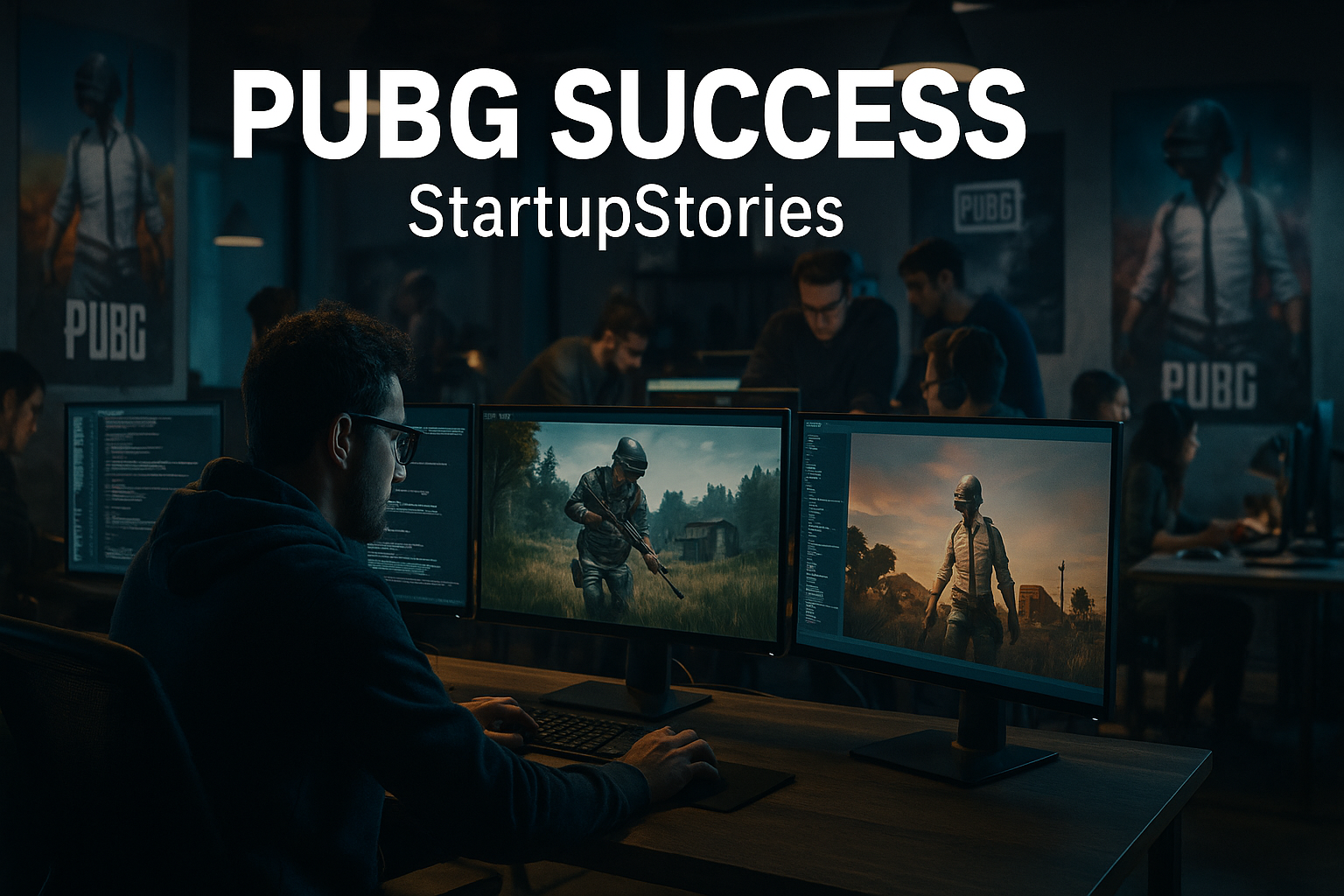PlayerUnknown’s Battlegrounds, better known as PUBG, is a game that not only broke records but also reshaped the global gaming landscape. Developed by PUBG Corporation, a subsidiary of South Korean firm Bluehole Inc., PUBG redefined how players interact in multiplayer arenas. What began as a simple concept quickly turned into a worldwide phenomenon, giving birth to a genre that would inspire a wave of battle royale titles.
The Birth of PUBG
PUBG originated from the creative mind of Brendan Greene, an Irish game designer who previously created mods for ARMA 2 and DayZ. Driven by a vision to craft an immersive survival experience, he collaborated with Bluehole to bring his concept to life. The result was the early access release of PUBG on Steam in March 2017, launching the beginning of something extraordinary.
Rapid Growth and Core Gameplay
The game's core mechanics—100 players dropping into an island to survive until one remains—was simple yet captivating. Its realism, strategic depth, and competitive tension struck a chord with players across the globe. The game’s cross-platform availability on PC, Xbox, and mobile helped fuel rapid adoption.
Viral Popularity and Word-of-Mouth
PUBG’s meteoric rise was powered by organic growth. Players shared their experiences on forums, social media, and streaming platforms like Twitch and YouTube. As top streamers showcased epic victories and nail-biting gunfights, the game quickly went viral, creating a vibrant and loyal community.
Esports and Competitive Play
PUBG swiftly entered the esports arena. The PUBG Global Invitational 2018 marked a milestone in its competitive journey, with high-stakes tournaments and global participation. Its intense gameplay—featuring shrinking zones and tactical team battles—made it a perfect fit for esports, attracting elite players and millions of viewers.
PUBG Mobile Revolution
The launch of PUBG Mobile in 2018 was a turning point. By optimizing gameplay for touchscreen controls and offering it for free, PUBG reached audiences in mobile-first regions like India, Southeast Asia, and the Middle East. Its in-game purchases and freemium model ensured monetization without sacrificing user engagement.
Global Reach and Market Penetration
PUBG didn't just conquer the West. It became immensely popular in Asia, especially in India and China, where mobile gaming flourished. PUBG Mobile Lite and region-specific events helped localize the experience, building an even broader player base.
Challenges and Controversies
PUBG’s success wasn’t without hurdles. Concerns over addiction and violence led to temporary bans in countries like India and Nepal. The game was also criticized for its impact on young players. In response, PUBG introduced parental controls, playtime limits, and in-game reminders to promote healthy gaming habits.
Expanding the PUBG Universe
To maintain momentum, PUBG Corporation launched new titles and collaborations. PUBG Lite catered to players with low-end PCs, while PUBG: New State introduced futuristic gameplay. Brand crossovers with Resident Evil, Godzilla vs. Kong, and others offered fresh content to keep players engaged.
PUBG vs. Fortnite and Genre Competition
PUBG’s biggest rival, Fortnite, brought a casual, cartoonish style to the genre. While Fortnite attracted younger players with its building mechanics and colorful visuals, PUBG stuck to its gritty realism. Both games coexisted, catering to different audiences and fueling the battle royale boom.
PUBG's Lasting Legacy
PUBG’s innovation laid the foundation for a genre that dominates the industry today. It inspired countless titles like Apex Legends and Call of Duty: Warzone, transforming the multiplayer gaming experience. With numerous awards and a loyal fan base, PUBG has etched its name in gaming history.
Wrapping Up
PUBG’s journey from a humble mod to a global gaming icon is a testament to creativity, community, and adaptability. Its emphasis on immersive gameplay and competitive dynamics revolutionized online gaming and created a vibrant esports ecosystem. While the industry evolves, PUBG remains a cornerstone of the battle royale genre, proving that innovation and user-centric design can change the gaming world forever.
Frequently Asked Questions (FAQs)
Q1. What is PUBG and who created it?
PUBG, or PlayerUnknown’s Battlegrounds, is a battle royale game created by Brendan Greene. It was developed by PUBG Corporation, a subsidiary of Bluehole Inc.
Q2. What made PUBG popular globally?
Its realistic gameplay, easy-to-understand mechanics, cross-platform support, and viral growth through streaming platforms like Twitch helped it gain global fame.
Q3. What role did PUBG Mobile play in its success?
PUBG Mobile made the game accessible to a wider audience, especially in developing countries, significantly expanding its user base.
Q4. What controversies has PUBG faced?
The game faced criticism for being addictive and was temporarily banned in several countries. Developers responded with features promoting responsible gaming.
Q5. Is PUBG still relevant in the current gaming market?
Yes, PUBG remains a leading battle royale game with ongoing updates, esports events, and a loyal global community.
